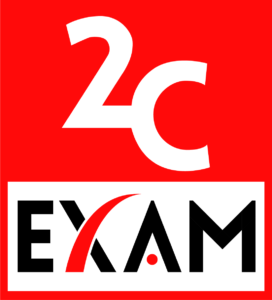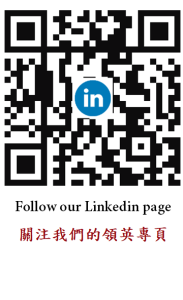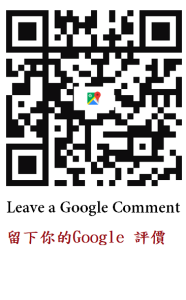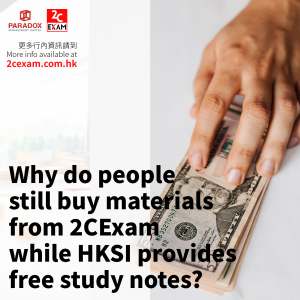Type A & B of exempted applicants
According to Insurance Authority’s Insurance Intermediaries Quality Assurance Scheme (IIQAS), There are 5 types (A, B, C, D, E) of individuals who could be exempted from the IIQE requirement.
Type A individuals could be exempted from IIQE Paper 1 (Principles and Practice of Insurance), IIQE Paper 2 (General Insurance), IIQE Paper 3 (Long Term Insurance) and IIQE Paper 6 (Travel Insurance).
Type B individuals could be exempted from IIQE Paper 5 (Investment-linked Long Term Insurance)
Type C, D and E of exempted applicants
Type C individuals could be exempted from IIQE Paper 1 (Principles and Practice of Insurance), IIQE Paper 2 (General Insurance) and IIQE Paper 6 (Travel Insurance Agents Examination).
Type D individuals could be exempted from at most 4 examinations, including IIQE Paper 1 (Principles and Practice of Insurance), IIQE Paper 2 (General Insurance), IIQE Paper 3 (Long Term Insurance) and IIQE Paper 6 (Travel Insurance Agents Examination).
Type E individuals could be exempted from IIQE Paper 6 (Travel Insurance Agents Examination).
Type A exemption requirements
The following are exempted from IIQE Paper 1, IIQE Paper 2, IIQE Paper 3, and IIQE Paper 6 examinations.
Holders of an approved insurance qualification:
1.Chartered Life Underwriter (CLU);
2.Associate or Fellow of The Chartered Insurance Institute (ACII/FCII);
3.Senior Associate or Fellow of the Australian and New Zealand Institute of Insurance and Finance (ANZIIF (Snr Assoc)/ANZIIF (Fellow))
4.Fellow of the Life Management Institute (FLMI);
5.Chartered Property Casualty Underwriter (CPCU);
6.Hong Kong Diploma in Insurance Studies of The Insurance Institute of Hong Kong/The Chartered Insurance Institute
Holders of an approved actuarial qualification:
1.Fellow of the Institute of Actuaries of England (FIA);
2.Fellow of the Faculty of Actuaries in Scotland (FFA);
3.Fellow of the Institute of Actuaries of Australia (FIAA);
4.Fellow of the Society of Actuaries of the United States of America (FSA).
Type B exemption requirements
The following are exempted from IIQE Paper 5 examination.
•Holders of recognized professional qualifications in insurance and investment:
1.Chartered Life Underwriter (CLU) who has passed the elective paper: “HS 328 Investments” of the CLU qualifying examination;
2.Chartered Financial Consultant (ChFC);
3.Certified Financial Planner (CFP);
4.Person who has passed the Foundation Programme Examination of the Hong Kong Securities and Investment Institute (FPE);
5.Person who has passed the Diploma Programme Examination of the Hong Kong Securities and Investment Institute (DPE);
6.HKSI Practicing Certificate of the Hong Kong Securities and Investment Institute (Passed HKSI Papers 1, 7, 8)
7.HKSI Specialist Certificate of the Hong Kong Securities and Investment Institute;
8.HKSI Professional Diploma in Financial Markets of the Hong Kong Securities and Investment
9.Institute.
•Holders of recognized professional qualifications in actuarial science:
1.Fellow of the Institute of Actuaries of England (FIA);
2.Fellow of the Faculty of Actuaries in Scotland (FFA);
3.Fellow of the Institute of Actuaries of Australia (FIAA);
4.Fellow of the Society of Actuaries of the United States of America (FSA).
Type C exemption requirements
Insurance intermediaries who fulfill all of the following requirements:
1.Practicing in the insurance intermediary business in Hong Kong immediately before 1st January 2000
2.Holder of the Certificate of Proficiency in General Insurance Studies issued by The Hong Kong Federation of Insurers
Are exempted from IIQE Paper 1 (Principles and Practice of Insurance), IIQE Paper 2 (General Insurance) and IIQE Paper 6 (Travel Insurance Agents Examination).
Type D exemption requirements
•Insurance intermediaries who are practicing in the insurance intermediary business in Hong Kong immediately before 1st January 2000
•Insurance intermediaries in possession of five years’ proven experience in insurance business in Hong Kong within the six-year period immediately before 1st January 2000
Can be exempted from sitting for IIQE Paper 1 (Principles and Practice of Insurance) , and the following paper as appropriate (whichever relates to the specific experience an applicant has obtained) :
1.IIQE Paper 2 (General Insurance)
2.IIQE Paper 3 (Long Term Insurance)
3.IIQE Paper 6 (Travel Insurance)
•Only insurance intermediaries who possess proven experience in both general and long term insurance business can be exempted from all papers i.e. IIQE Paper 1, IIQE Paper 2, IIQE Paper 3 and IIQE Paper 6.
Type D work experience vs exempted papers
| Able to waive IIQE Paper 1 Principle and Practice of Insurance | Able to waive IIQE Paper 2 General Insurance | Able to waive IIQE Paper 3 Long Term Insurance | Able to waive IIQE Paper 6 Travel Insurance Agents |
| ✓ | ✓ | ||
| ✓ | ✓ | ||
| ✓ | ✓ |
Type E exemption requirements
Applicants who have passed both of the following IIQE Papers:
1.Principles and Practice of Insurance (Paper 1)
2.General Insurance (Paper 2)
Can be exempted from sitting for IIQE Paper 6 (Travel Insurance Agents Examination Paper).
How can we help?
2CExam provides HKSI LE, IIQE, EAQE and SQE related exam preparation materials. We sell mock question banks for IIQE Papers 1, 2, 3, 5 and MPFE in Chinese and English; and bibles for IIQE Papers 1, 2, 3, MPFE in Chinese. We also offer 1 on 1 tutorial services. Besides, we have also made free tutorial videos for IIQE Papers 1, 2, 3 and MPFE and posted on public channels such as Youtube/ Bilibili/ Tencent/ Iqiyi. 2CExam has been an exam training expert for years. Should you need any help please visit www.2cexam.com or contact us through:
Phone +852 2110 9644 Email: [email protected] Wechat: hk2cexam WhatsApp: +852 9347 2064
Please support us by leaving comments and likes if you think this article helps you!
You can scan or click on the QR codes to visit our social media.
Latest Article
Categories
過往文章
Contact US
-
Phone:
+852 2110 9644
-
Email:
-
WhatsApp
+852 9347 2064
-
WeChat
hk2cexam
Interesting Articles
Which license is required for bank employees engaged in securities business?
Should Hong Kong bank employees apply for an HKMA license or an SFC license? According to the licensing requirements for real estate practitioners, passing relevant qualification exams is a necessary condition for obtaining a real estate agent (individual) license or a salesperson license. The Hong Kong Securities and Futures Practitioners Qualification Exam (HKSI LE) is…
What is the difference between an SFC license and HKMA registration in Hong Kong?
What is the difference between an SFC license and HKMA registration in Hong Kong? In Hong Kong, the statutory organization responsible for regulating the securities and futures markets is the Securities and Futures Commission (SFC). The Securities and Futures Ordinance, which came into effect on April 1, 2003, grants the SFC regulatory authority over the…
What is an HKSI certificate?
What is an HKSI certificate? What is the use of an HKSI exam transcript? What is an HKSI certificate? Do I need an HKSI exam transcript or an HKSI certificate when applying for SFC registration? To work in the securities industry in Hong Kong, passing the Hong Kong Securities and Futures Commission (SFC) Licensing Exam…
How to obtain an exemption for the HKSI LE Securities and Futures Practitioners Qualification Examination?
How to obtain an exemption for the HKSI LE Securities and Futures Practitioners Qualification Examination? In the previous issue, we talked about how if someone wants to work in the securities industry in Hong Kong, they must first pass the Hong Kong Securities and Investment Institute’s (HKSI) Licensing Examination for Securities and Futures Intermediaries. Are…
Where can I register for securities exams in Hong Kong?
Where can I register for securities exams in Hong Kong? If you want to work in the securities industry in Hong Kong, you must pass the Securities and Futures Commission (SFC) Licensing Exam LE. The organization that conducts the Licensing Exam LE in Hong Kong is the Hong Kong Securities and Investment Institute (HKSI). The Hong…
Often hear the beautiful ladies and handsome gentlemen in the Hong Kong financial sector talking about the “178 license” they need to obtain. What exactly is it?
What is the Hong Kong 178 license? In fact, the 178 license is not a real license but refers to a combination of examination papers that need to be taken. It consists of the Hong Kong Securities and Futures Practitioners Qualification Examination Paper 1, Paper 7, and Paper 8. In Hong Kong, activities related to…
What is the SFC license in Hong Kong?
What is the SFC license in Hong Kong? The Securities and Futures Commission (SFC) of Hong Kong was established in 1989 as an independent statutory body responsible for regulating the securities and futures markets in Hong Kong. The Securities and Futures Ordinance and its subsidiary legislation grant the SFC the power to investigate, correct, and…
Why do people still buy materials from 2CExam while HKSI provides free study notes?
In addition to organizing LE exams, the HKSI will also provide students who take the LE exam with the exam coverage called the Study Note. It depicts what is covered in the exam with hundreds of pages and full of paragraphs. It is lengthy and contains a lot of data and examples that will not…
EAQE/ SQE Real Estate Agency Exam Coverage/ Scope for Revision
Many students are clueless about the exam coverage / scope for doing revision on the Estate Agent Qualifying Examination (EAQE) and Salesperson Qualifying Examination (SQE). VTC’s PEAK does not have any notes available for candidates to download. In fact, the scope of the exam is quite extensive. Some of the coverage can be downloaded from…
Is success an Unattainable Ideal in the Real Estate Industry? 10 Benefits of Being in the Real Estate Industry Can Stimulate Your Capacity
Is it difficult to succeed in the real estate industry? Living space is one of the indispensable elements in life. From the wealthy speculating and selling flats to ordinary people looking for a place to live, most Hong Kong people have the demand to rent or even invest in the real estate market. Hong Kong’s…






